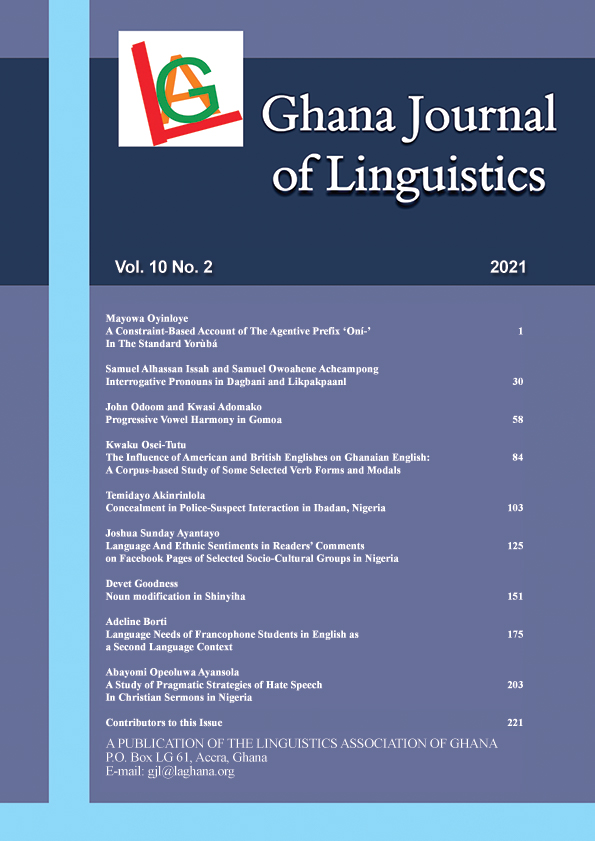Main Article Content
The Influence of American English and British English on Ghanaian English A Corpus-based Study of Some Selected Verb Forms and Modals
Abstract
English has been the de facto official language of Ghana since the country gained independence from Britain in 1957. According to Dolphyne (1995:31) “it is… standard written [British] English that newspaper editors and editors of journals aim at, as well as teachers in their teaching of English at all levels.” Shoba et al. (2013) also reinforce this stating that British English has remained the standard of the Ghanaian educational system since colonization. In recent times, however, American English has become more popular in Ghana, especially in the entertainment industry (Anderson et al., 2009). Using data from the International Corpus of English (Ghana component – written and spoken; British component – written and spoken; and the American component – written) and the Corpus of Contemporary American English (COCA), this paper looks at the frequencies of got, gotten and the modals will, shall, should and must with the aim of finding out which of the two native varieties Ghanaian English patterns after. The results of the study reveal that while Ghanaian English reflects some influence from American English by showing a tendency to pattern after it with regard to got and gotten, the same cannot be said regarding the modals will, shall, should and must.






